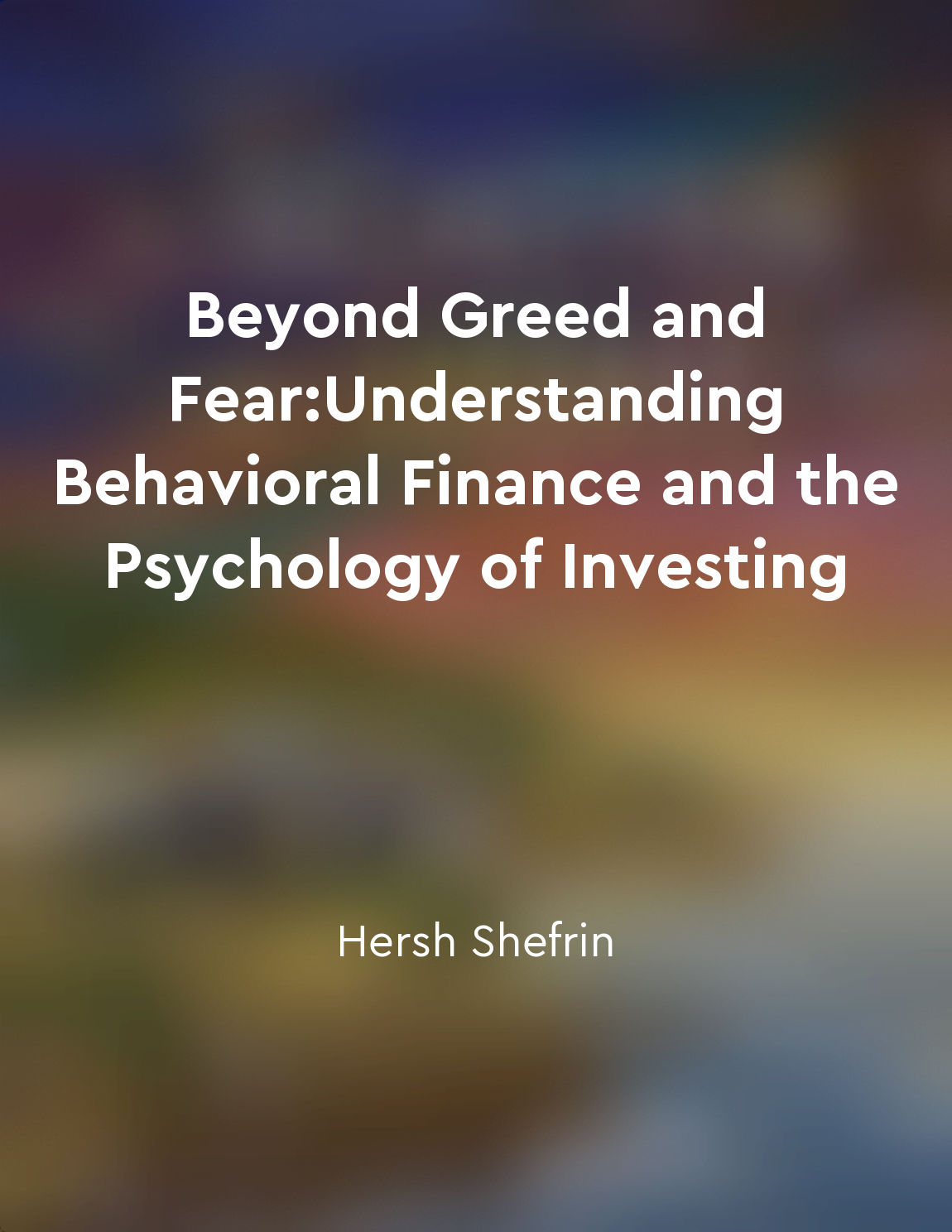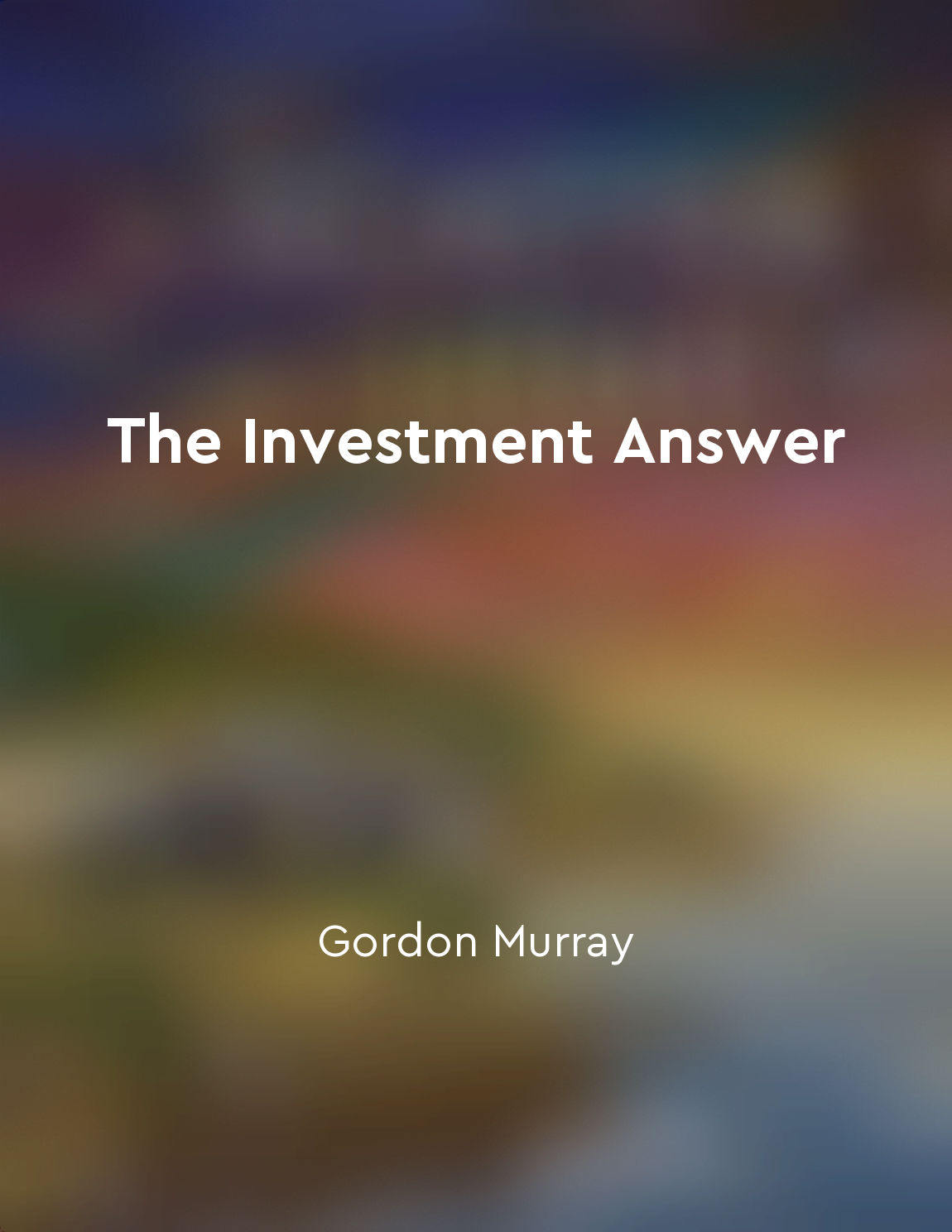Endowment effect causes investors to overvalue their holdings from "summary" of Beyond Greed and Fear:Understanding Behavioral Finance and the Psychology of Investing by Hersh Shefrin
The endowment effect is a powerful force that influences how investors perceive the value of their investments. When individuals own an asset, they tend to place a higher value on it compared to what they would be willing to pay to acquire the same asset. This cognitive bias causes investors to overvalue their holdings, leading them to make decisions based on subjective rather than objective assessments of worth. The endowment effect is rooted in the psychological concept of ownership, where individuals develop a sense of attachment and familiarity with the things they own. This emotional connection clouds their judgement and skews their perception of value, making them more reluctant to part with their possessions even when presented with better alternatives. As a result, investors may hold onto assets longer than they should, missing out on opportunities to optimize their portfolios and maximize returns. The impact of the endowment effect on investment decisions can be significant, especially in situations where individuals become emotionally invested in specific assets. This bias can lead to a reluctance to sell underperforming holdings, even when it may be in their best interest to cut losses and reallocate resources elsewhere. By overvaluing their investments, investors expose themselves to unnecessary risks and limit their potential for growth and diversification. Recognizing the influence of the endowment effect is crucial for investors looking to make rational decisions and overcome behavioral biases that can hinder their financial success. By acknowledging the tendency to overvalue their holdings, individuals can take steps to mitigate the effects of this bias and adopt a more objective approach to evaluating their portfolio. Through self-awareness and careful consideration, investors can avoid falling prey to the pitfalls of emotional attachment and make strategic choices that align with their long-term goals and objectives.Similar Posts

The importance of setting clear investment goals
In order to achieve success in investing, it is essential to establish clear and specific investment goals. These goals serve a...

Seek professional advice when needed
When it comes to making investment decisions, it is important to recognize when you may need professional advice. Seeking the g...
Build multiple streams of income
Building multiple streams of income is a key concept in achieving financial success. This means not relying solely on one sourc...
Understand efficient market hypothesis
Efficient market hypothesis is a cornerstone of modern financial theory. It suggests that the prices of securities in financial...
Build an emergency fund
Having an emergency fund is like having a safety net that can catch you when unexpected expenses or financial setbacks come you...
Overconfidence can lead to financial mistakes
Overconfidence can lead to financial mistakes because it causes investors to take on too much risk. When we are overconfident, ...
Money beliefs are learned from childhood
Our beliefs about money are deeply ingrained within us from a young age. We absorb attitudes and behaviors towards money from t...

Strive for financial freedom and independence
The idea of striving for financial freedom and independence is a central theme in Rich Dad Poor Dad. It is about taking control...
Risk management is a key component of a successful investment strategy
Successful investing is not just about making money; it's also about protecting what you have earned. In the world of finance, ...
Availability heuristic distorts perception of risk
The availability heuristic can often lead investors astray when it comes to evaluating risks. This mental shortcut causes indiv...
